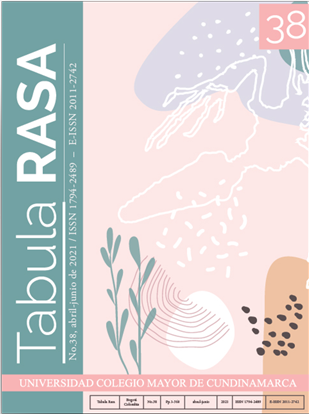Para uma ética transdisciplinar dos estudos globais.
Mostrar biografia dos autores
Esse artigo almeja agir nos limites disciplinares que têm obstruído, até agora, o intercâmbio significativo de ideias entre diferentes formações intelectuais nos estudos de “literatura universal”, “história mundial”, “arte universal”, “musica mundial”, “cine mundial” e assim por diante, num conglomerado sob o nome de “estudos globais”. Num momento em que a interconexão global se torna mais e mais decisiva, além de profunda, em nossa época contemporânea. Isso não apenas pela globalização cultural e econômica, mas pela exacerbação da crise ecológica, o estudo do mundo tal e qual — sem importar como se defina desde diferentes pontos de vista ontológicos e epistemológicos — precisa um esforço transdisciplinar concertado. Ao considerar a literatura e a história universais como exemplos, esse artigo faz um esforço transdisciplinar e, ao mesmo tempo, adverte contra a construção de centrismos alternativos em nossa necessária desconstrução do eurocentrismo em nossos estudos do mundo.
Visualizações de artigos 124 | Visitas em PDF 116
Downloads
- Abu-Lughod, J. L. (1991). Before European Hegemony: The World System A.D. 1250-1350.
- Oxford: Oxford University Press.
- Aidi, H. D. (2005). Let Us Be Moors: Islam, Race, y “Connected Histories”. Souls: A Critical Journal of Black Politics, Culture, and Society, 7(1), 36-51. https://doi.org/10.1080/10999940590910032
- Aldridge, A. O. & Kamei, S. (1972). ‘A Note.’ Problems and Vistas of Comparative Literature in Japan and the United States: A Dialogue. Mosaic: An Interdisciplinary Critical Journal, 5(4), 149-163. https://www.jstor.org/stable/i24775427
- Bassnett, S. (1993). Comparative Literature: A Critical Introduction. Cambridge: Blackwell.
- Bose, S. (2006). A Hundred Horizons: The Indian Ocean in the Age of Global Empire. Cambridge, MA: Harvard University Press.
- Chang, S. Y. (2016). Wartime Taiwan: Epitome of an East Asian Modality of the Modern Literary Institution? En C. Rojas & A. Bachner. The Oxford Handbook of Modern Chinese Literatures (pp.417-439). Oxford: Oxford University Press.
- Chakravarty, D. (2000). Provincializing Europe: Postcolonial Thought and Historical Difference. Princeton, NJ: Princeton University Press.
- Chatterjee, P. (1986). Nationalist Thought and the Colonial World: A Derivative Discourse. New York: Zed Books.
- Chaudhuri, K. N. (1985). Trade and Civilization in the Indian Ocean: An Economic History from the Rise of Islam to 1750. Cambridge: Cambridge University Press.
- Eskildsen, R. (2002). Of Civilization and Savages: The Mimetic Imperialism of Japan’s 1874 Expedition to Taiwan. American Historical Review, 107(2), 388-418. https://doi.org/10.1086/ahr/107.2.388
- Fairbank, J. K. (1966). China’s World Order: The Tradition of Chinese Foreign Relations. Encounter, 27(6), 14-20.
- Fletcher, J. F. (1995). Studies on Chinese and Islamic Inner Asia, Manz, B.F. (Ed.). Aldershot, Hampshire: Variorum.
- Frank, A. G. (1998). Re-Orient: Global Economy in the Asian Age. Los Angeles: University of California Press.
- Frank, A. G. & Gills, B. K. (1994). The World System: Five Hundred Years or Five Thousand? New York: Routledge.
- Frank, J. (1991). The Idea of Spatial Form. New Jersey: Rutgers University Press.
- Glissant, E. (1997). Poetics of Relation (Trad. Betsy Wing). Ann Arbor: University of Michigan Press. https://www.press.umich.edu/10262/poetics_of_relation
- Hamashita, T. (2008). China, East Asia, and the Global Economy: Regional and Historical Perspectives. L. Grove & M. Seldon (eds.). Nueva York: Routledge.
- Harootunian, H. & Miyoshi, M. (Eds.). (2002). Leaning Places: The Afterlives of Area Studies. Durham: Duke University Press.
- Hobson, J. M. (2004). The Eastern Origin of Western Civilization. Cambridge: Cambridge University Press.
- Kleeman, F. Y. (2003). Under an Imperial Sun: Japanese Colonial Literature of Taiwan and the South. Honolulu: University of Hawaii Press.
- Levanthes, L. (1991). When China Ruled the Seas: The Treasure Fleet of the Dragon Throne, 1405-1433. Oxford: Oxford University Press.
- Pearson, M. (2013). The Indian Ocean. New York: Routledge.
- Pomoranz, K. (2001). The Great Divergence: China, Europe, and the Making of Modern World History. Princeton: Princeton University Press.
- Posnett, H. M. (1886). Comparative Literature. New York: D. Appleton and Company.
- Rama, A. (1996). The Lettered City. (trad. John Charles Chasteen). Durham: Duke University Press.
- Schiller, F. (1972 [1789]. The Nature and Value of Universal History: An Inaugural Lecture. History and Theory, 11(3) 321-334. https://www.jstor.org/stable/2504683?seq=1
- Shih, S. (2019). Racializing Area Studies, Defetishizing China. Positions, 27(1), 33-65. https://doi.org/10.1215/10679847-7251806
- Shih, S. (2013). Comparison as Relation. In R. Felski, & S. Friedman (Eds.). Comparison: Theories, Approaches, Uses, (pp.79-98). Baltimore: Johns Hopkins University Press.
- Shih, S. (2004). Global Literature and the Politics of Recognition. PMLA, 119(1), 16-30. https://www.jstor.org/stable/1261482?seq=1
- Shih, S. (2001). The Lure of the Modern: Writing Modernism in Semicolonial China, 1917-1937. Berkeley: University of California Press.
- Spivak, G. (2005). The Death of a Discipline. New York: Columbia University Press.
- Stoler, A. (1995). Race and the Education of Desire: Foucault’s History of Sexuality and the Colonial Order of Things. Durham: Duke University Press.
- Subrahmanyam, S. (2007). Holding the World in Balance: The Connected Histories of the Iberian Overseas Empires, 1500-1640. The American H istorical Review, 112(5), 1359-1385. https://doi.org/10.1086/ahr.112.5.1359
- Subrahmanyam, S. (2005). Explorations in Connected History: from the Tagus to the Ganges,
- Oxford: Oxford University Press.
- Subrahmanyam, S. (1999). Connected Histories: Notes Towards a Reconfiguration of Early Modern Eurasia. In V. Lieberman (ed.). Beyond Binary Histories: Reimagining Eurasia to c. 1830. Ann Arbor: University of Michigan Press.
- Zhao, T. (2006). Rethinking Empire from a Chinese Concept ‘All-under-Heaven’ (Tian-xia, 天下), Social Identities: Journal for the Study of Race, Nation and Culture, 12(1), 29-41. https://www.tandfonline.com/doi/abs/10.1080/13504630600555559#:~:text=Original%20Articles-Rethinking%20Empire%20from%20a%20Chinese%20Concept%20’All%2Dunder%2DHeaven,’%20(Tian%2Dxia%2C%20)&text=In%20this%20paper%20the%20author,hearts%20and%20a%20world%20institution
- Zhao, T. (2005). The Tianxia System: An Introduction to the Philosophy of World Institution (tianxia tixi). Nanjing: Jiangsu jiaoyu chubanshe.








